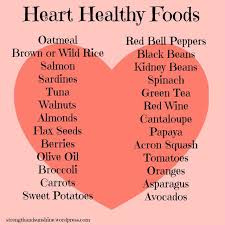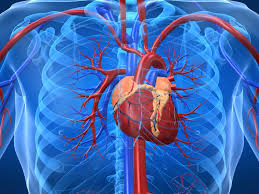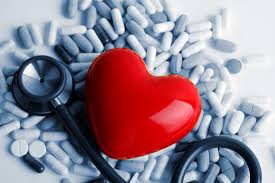
Diagnosed with Cancer? Your two greatest challenges are understanding cancer and understanding possible side effects from chemo and radiation. Knowledge is Power!
Learn about conventional, complementary, and integrative therapies.
Dealing with treatment side effects? Learn about evidence-based therapies to alleviate your symptoms.
Click the orange button to the right to learn more.
- You are here:
- Home »
- Blog »
- side effects ID and prevention »
- Cardio-Oncology- Cardiology for Cancer Survivors-
Cardio-Oncology- Cardiology for Cancer Survivors-

Cardio-oncology is a developing discipline of practitioners who are focused on the prevention, early detection and optimal treatment of cardiovascular disease in patients treated for cancer
If you’re a cancer survivor who has undergone cardio-toxic chemotherapy regimens and please understand that cardio-oncology must be your priority.
Cardio-oncology and the awareness of the long-term adverse effects that chemotherapy and radiation can cause is a relatively new area of focus for oncology. Don’t be dissappointed if your oncologist didn’t warn you about the possible damage you sustained to your heart during your active therapies.
Here’s what can happen to you.
I underwent cardiotoxic chemotherapies in 1995 (V.A.D., Cytoxan, Busulfan, Melphalan) for a blood cancer called multiple myeloma. I developed chronic atrial fibrillation in late 2010. I had an echo but didn’t know what was going on with my heart. I thought my afib was one of many side effects that I live with.
In 2016 I had another echo. My cardiologist told me that I had Marfan Syndrome. I had never been diagnosed with Marfan but since my dad had it, his cardiologist, Dr. Barry Effram, now my cardiologist, told me that I had Marfan too. My ascending aorta was dialated.
I had another echo in 2018. Same cardiologist, same diagnosis as 2016. By now I was beginning to suspect something was wrong- not Marfan wrong. I have no Marfan symptoms… I found and went to a cardio-oncologist at the Cleveland Clinic.
Dr. Moudgil diagnosed chemotherapy-induced cardiomyopathy at that appointment (early 2019). I’m not on any heart therapies yet, nor am I have any of the typical symptoms. I’m researching who, what, where, etc.
Like cancer, there are a host of evidence-based, non-toxic therapies that can help my heart. I’m already taking
- CoQ10,
- PQQ,
- Taurine,
- Carnitine
- Vitamin C (w/amino acids),
- Omega-3 fatty acids
- Magnesium
others.
Moderate exercise every A.M. My diet is already pretty good. My B.M.I. is already pretty good at 23. My blood pressure fluctuates around 70/110.
You’d think I would wise up after already dealing with afib (atrial fibrillation), two DVT’s (deep vein thrombosis), nerve damage, chemobrain, hemorrhagic cysititis, others… And no, my chemotherapy did not help. That’s another blog post.
All to say I am trying to figure out if I can manage my cardiomyopathy with non-toxic therapies alone or if I need conventional therapies, surgery, etc. I have a problem with toxic therapies and their short, long-term and late stage side effects… Job number one however is add cardio-oncology to your survivor team.
If your situation is anything like the above, scroll down the page, post a question or comment and I will reply to you ASAP.
Thank you,
David Emerson
- Cancer Survivor
- Cancer Survivor
- Cancer Coach
Recommended Reading:
- Organic Diet-Fewer Cancer Dx’s, Longer Cancer Survival
- Evidence to Manage My Heart Disease is “Weak”
- Hempseed and Heart Health
Many Cardiologists Ill-Equipped to Treat Heart Disease in Cancer Survivors
“Cancer treatments save lives, but they can also compromise the heart in the long run. Now, new research shows that many U.S. cardiologists aren’t trained to treat this unique group of patients.
Consider cardio-oncology.
Heart disease and cancer are the two main causes of death in the United States, but advances in early detection and treatment of cancer have resulted in rising numbers of cancer survivors. By 2026, there will be 20 million U.S. cancer survivors, and half of them will be 70 or older.
The combination of an aging population of cancer survivors with heart disease and a growing number of cancer treatments that can harm the heart have led to a growing need for cardiologists who can treat cancer patients with heart disease, researchers said. The field is called cardio-oncology.
“Cardio-oncology is a developing discipline of practitioners who are focused on the prevention, early detection and optimal treatment of cardiovascular disease in patients treated for cancer and who are focused on balancing the cardiovascular and oncologic needs of patients prior to, during and after therapy..”
Training programs to help cardiologists care for cancer patients with heart disease are being introduced, according to the paper, published April 29 in the Journal of the American College of Cardiology.
A survey by the authors found that 51% of accredited general cardiology fellowship programs are part of institutions providing dedicated cardio-oncology services, up from 27% in 2014.
Another 33% said they were planning to add these services in the near future, but only nine of the institutions that offer cardio-oncology services had training opportunities specific for the field of cardio-oncology.
In a journal news release, the researchers stressed the importance of cardiologists and cancer specialists working together to treat cancer patients with heart disease.”



